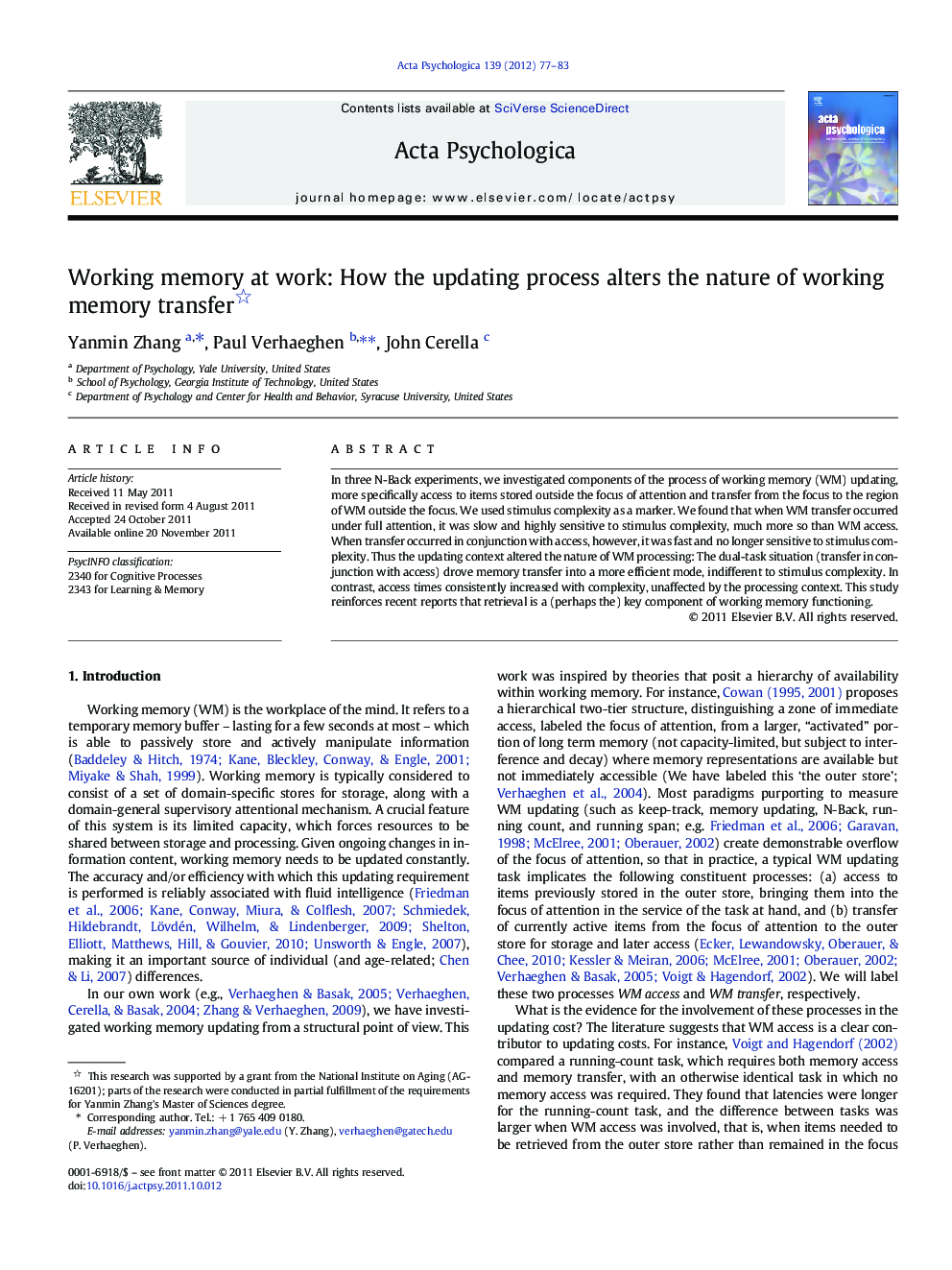| Article ID | Journal | Published Year | Pages | File Type |
|---|---|---|---|---|
| 920095 | Acta Psychologica | 2012 | 7 Pages |
In three N-Back experiments, we investigated components of the process of working memory (WM) updating, more specifically access to items stored outside the focus of attention and transfer from the focus to the region of WM outside the focus. We used stimulus complexity as a marker. We found that when WM transfer occurred under full attention, it was slow and highly sensitive to stimulus complexity, much more so than WM access. When transfer occurred in conjunction with access, however, it was fast and no longer sensitive to stimulus complexity. Thus the updating context altered the nature of WM processing: The dual-task situation (transfer in conjunction with access) drove memory transfer into a more efficient mode, indifferent to stimulus complexity. In contrast, access times consistently increased with complexity, unaffected by the processing context. This study reinforces recent reports that retrieval is a (perhaps the) key component of working memory functioning.
